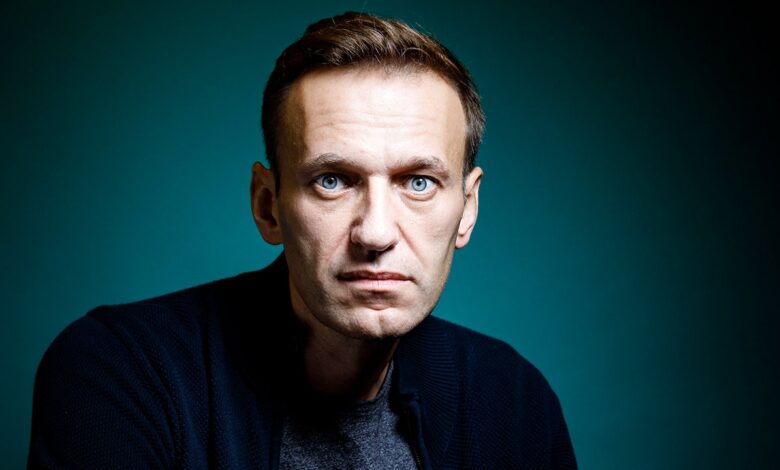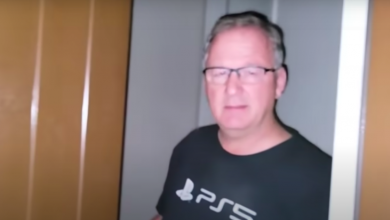What Alexey Navalny’s Death Means For Russia and Putin’s Regime

“I’m not ready for my son to become a martyr.” Alexey Navalny’s mother said these words in 2011, at the start of his journey to prominence as Russia’s most active opposition politician. Thirteen years later, as news of her son’s death, in a remote penal colony inside Russia’s Arctic Circle, spread across the world, she said that she didn’t want to hear any condolences. “I saw my son in prison on the 12th, when we went to visit him. He was alive, healthy, and cheerful.”
Navalny’s team filled the void of his absence with similar calls. “We have no reason to believe state propaganda. They have lied, are lying and will continue to lie,” wrote Leonid Volkov, a longtime associate of Navalny’s. “Don’t rush to bury Alexey.”
Who could blame them? Everyone knew the stakes. Navalny had risen from anti-corruption activist to online superstar to grassroots organizer to Russia’s most famous political prisoner. He had battled countless physical attacks along the way, including one, when the nerve agent Novichok nearly killed him. Navalny himself had addressed the possibility of his death in the Oscar-winning documentary that carried his name. “Don’t give up. You cannot give up,” he says straight to the camera in the film directed by Daniel Roher. “If it happens, if they decide to kill me, it means we are incredibly strong. We need to use that power.” That begins by depriving the Russian state of the authority of defining his death.
Navalny was a singular figure in Russia—though he would bristle at that description. He wanted to inspire through his example and empower average people to throw off the yoke of Vladimir Putin’s tyrannical leadership—itself, an inheritance from centuries of Russian imperial rule. If Navalny—the son of a couple who owns a basket-weaving factory in the outskirts of Moscow, and who studied law at a second-tier university—could come deeply in touch with his power as a citizen, couldn’t anyone? When Navalny emerged in 2011 to become a leader of the massive street protests that swept Russia (after Putin announced he was returning to the presidency following a brief stint as prime minister), his chants embodied that idea. “We exist!” he would yell to a crowd of tens of thousands. At one such protest, late in 2011, he sounded like a being from another planet, far from a Russia that had consolidated itself around one man: “The only source of power is the people of the Russian Federation,” Navalny told the crowd. The roar in response was deafening.
Now he is gone, killed—perhaps in the moment, but certainly over the past few years of his imprisonment—by a regime that could not tolerate him. “Putin tried and failed to murder Navalny quickly and secretly with poison, and now he has murdered him slowly and publicly in prison,” wrote the exiled Russian opposition figure Garry Kasparov, and he could not be more right.
Navalny grew an enormous following inside Russia by conducting thorough and easily digestible investigations into the corruption of the country’s top elite, including Putin. He exposed shady deals, gaudy palaces, nepotistic excesses, and luxury yachts. After he was poisoned with Novichok on a trip to Siberia, he, along with the journalist Christo Grozev, called one of his own poisoners—an FSB agent—and got him to admit what he had done.
His career in politics began on the street and then quickly shifted into something more. In 2013, he ran for mayor of Moscow and came in second. Three years later, he tried to run for president but was barred. He founded an organization, the Anti-Corruption Foundation, which opened regional chapters across the country, before being declared extremist in 2021 and now operates in exile. He launched a campaign to get Russians to engage in “Smart Voting”—casting their ballots for anyone but Putin’s cronies in the United Russia party.
He was driven by one goal—to get Putin and his henchmen out of power. He made some serious mistakes along the way, including early engagement with nationalist anti-migrant politics and initial acceptance of Putin’s seizure of Crimea from Ukraine, which he later renounced.
Through it all, he remained, unmistakably, himself. Navalny was deeply serious about his work, but also quick to make a joke or flash a smile. This might not seem notable, but in Russia it was revolutionary. Russia’s Soviet legacy did so much to degrade the country, including its language and the way people not well acquainted interact with one other. Listening to a politician or newscaster talk is often an exercise in acronyms, the passive voice, and language so technical it’s as though they’re talking about the intricacies of factory parts. Interpersonal exchanges are governed by suspicion or fear.



